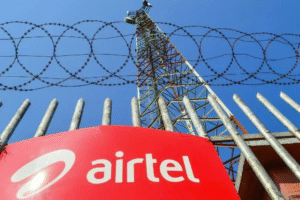Reports from an employee at QuickMart Mtwapa have exposed a deeply entrenched toxic culture that mirrors the broader issues plaguing the supermarket chain.
The employee specifically called out Mr. Peter, an acting manager, for fostering an environment rife with tribalism, favoritism, and authoritarianism.
According to the complaint, Mr. Peter not only bypasses the store’s chain of command but also wields his power to arbitrarily assign shifts, deny or grant leave at will, and enforce disciplinary actions without justification.
His behavior allegedly instills fear among employees, discouraging them from raising concerns, as dissent often results in punitive transfers to undesirable locations like Sameer RMS.
Further compounding the situation, Mr. Peter reportedly violates company policy by employing his wife at the same branch, creating conflicts of interest and fueling accusations of neepotism.
Staff members describe his leadership style as oppressive, with decisions driven more by personal biases than by professionalism.
One example provided was an incident where an employee was forced to write an explanation letter simply for needing a password, a seemingly trivial matter that underscores the overreach of his authority.
This toxic atmosphere has left employees demoralized and working under constant stress.
These allegations align disturbingly well with similar complaints from QuickMart employees in other regions.
Reports have emerged of widespread harassment and favoritism by HR personnel, with junior employees bearing the brunt of these practices.
At some branches, HR teams have been accused of creating fabricated accusations to dismiss employees arbitrarily, particularly when they attempt to report grievances to higher management.
This systemic issue has reportedly led to a culture of fear, where employees feel powerless to challenge injustices or advocate for their rights.
The focus appears to be on protecting management and ensuring staff compliance through intimidation, rather than fostering a supportive and ethical work environment.
QuickMart’s failure to address these issues reflects poorly on its commitment to employee welfare.
The persistent pattern of toxic practices, from tribal favoritism to unethical HR conduct, paints a grim picture of a company that prioritizes managerial dominance over fair treatment and accountability.
These behaviors undermine employee morale and productivity, inevitably affecting the quality of customer service and the company’s reputation in the long term.
As Kenya’s second-largest supermarket chain, QuickMart has a responsibility to uphold ethical workplace standards.
Ignoring these allegations not only tarnishes its public image but also risks severe legal and financial consequences.
A thorough overhaul of management practices, transparent policies, and independent mechanisms for reporting grievances are urgently needed.
Without these measures, QuickMart risks alienating its workforce and losing the trust of its customers.





















Add Comment